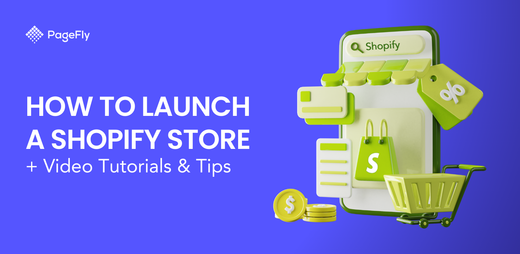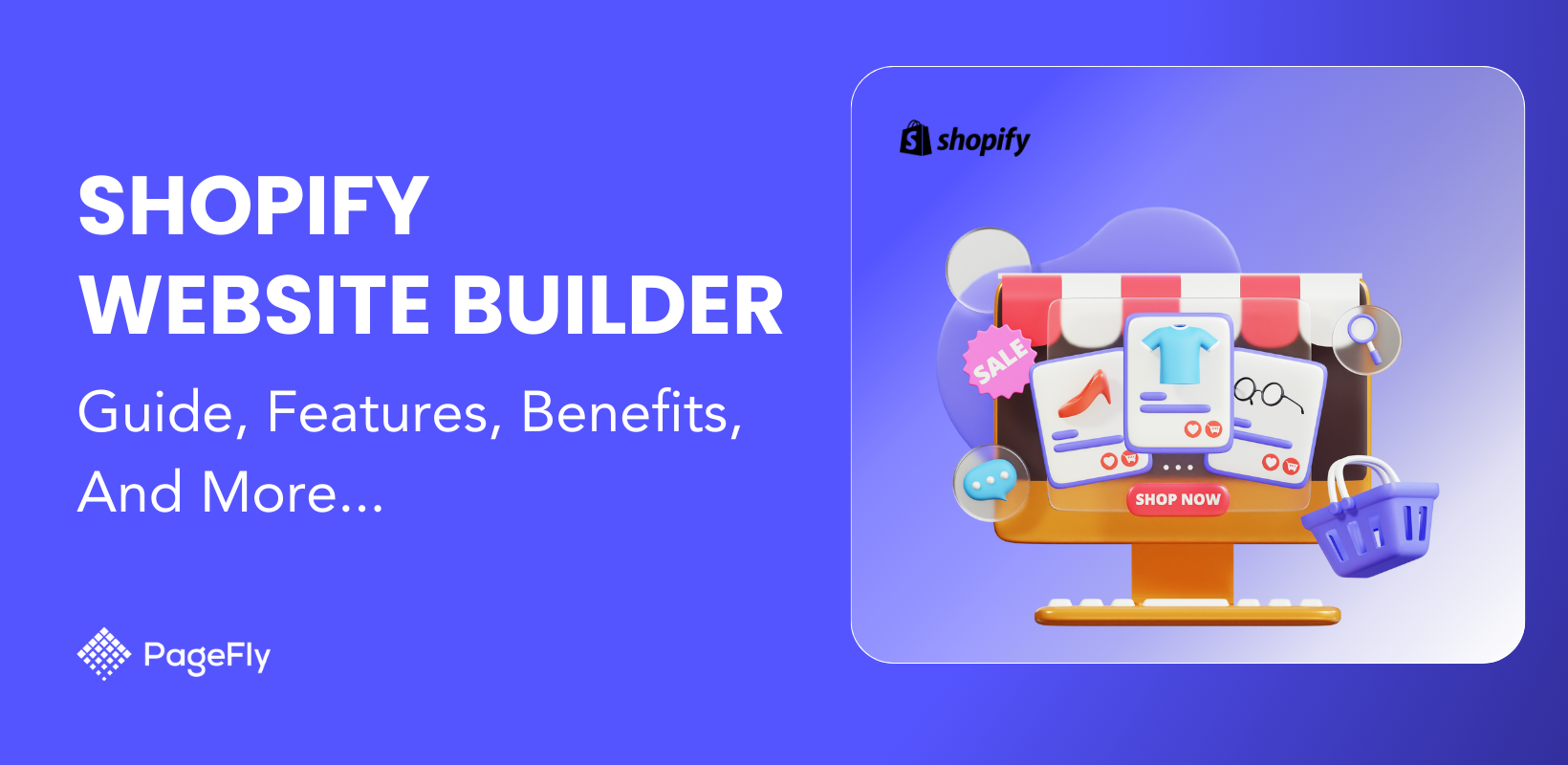Shopify is a global ecommerce platform that can propel businesses to new heights through its features, automation, and global reach. The platform is capable enough for small to medium businesses. But when demands grow, ecommerce companies upgrade to Shopify Plus Websites to unlock enterprise features that will make the workflow more secure and efficient.
So, we arrive at the question, “Should I upgrade to Shopify Plus?”. The answer is not just a simple yea or nay.
In this article, we will shed light on your question by comparing Shopify Plus to the standard plans, and provide examples of successful Shopify Plus Websites so you can compare if your business has the same demands.
What is Shopify Plus?

How does Shopify work? At its core, Shopify provides a flexible ecommerce platform that simplifies online store management for businesses of all sizes. As companies grow, Shopify Plus offers advanced tools and features to meet the increasing complexity of enterprise operations, streamlining processes like inventory management, sales tracking, and automation. Shopify Plus Websites are not for every business model. The features and benefits of Shopify Plus are particularly useful for large enterprises with complex SKUs, several locations, or a sizable number of staff and points-of-sale scattered in several store branches.
If you are just starting out small on your ecommerce business, the standard Shopify plans will be more than capable of handling your tech needs.
So, what exactly is Shopify Plus?
Shopify Plus is a high-tier ecommerce platform designed to empower enterprise-level businesses and fast-growing brands. Among its standout Shopify Plus features are tools for scaling operations online, managing inventory, handling human resources, and optimizing sales processes.
Best Shopify Plus Websites
To give you a more concrete view of what Shopify Plus Websites are, here are some success stories of Shopify Plus users.
01. State Bicycle Co.

State Bicycle Co. is one of the top Shopify Plus websites. This brand is a dealer of bicycles, parts, accessories, and they have their own clothing line. The company was established in 2009 by brothers Mehdi and Reza, and their sheer love for cycling. Guided by their goal of making bicycles accessible to everyone, they managed to bring high-quality, branded bikes for as low as $399.99.
With the help of Shopify Plus, their customers can’t just shop ready-built bikes. They can create their personalized bicycle by choosing which part goes into their bike.
The freedom and enjoyment that this gives to their online visitors helped propel State Bike Co.’s online revenues by 500% and increased their web traffic by 2.5X.
Using Shopify Plus, they achieved the design, security, compliance, and functionality that they wanted for their ecommerce store.
02. Allbirds

Allbirds is a fashion brand established in 2021 with a very nature-friendly advocacy. Their goal is to reduce their company’s carbon footprint to nearly zero by year 2020. They claim that two (2) years in, they have managed to cut their emissions to almost 50%.
Guided by their goal of leaving a near-zero carbon footprint, they turn to sustainable materials to manufacture their products. Their main materials are wool, trees, and sugarcane.
Like other Shopify Plus sites, the brand can tap into their customers around the world. Currently, they now have more than 40 physical stores in the US alone, and more than 10 stores scattered across Europe and Asia.
With a global brand like this, inventory and logistics is a nightmare. But with the help of Shopify POS systems, they manage to optimize the inventory of their omnichannel business.
03. Aje

Aje is an Australian fashion brand founded in 2008 by Adrian Norris and Edwina Forest. They specialize in crafting luxurious dresses and statement pieces for women – the kind of clothing that you mostly see on runways.
They are renowned for their stunning physical stores in Australia and New Zealand. For almost a decade, they were focused on selling through these channels and managed to achieve success at that – thanks to Aje’s strong social media presence..
But with the advent of ecommerce, they realized that they have the capacity to become a truly global brand and compete head-on with other famous luxury fashion labels.
Thus, they turn to Shopify Plus to achieve this goal. Leveraging the robust tools of Shopify Plus, they translated their luxurious physical stores into a seamless Shopify store design, enhancing the online shopping experience for their customers.
In just a few weeks, they managed to increase their conversion rate to 135%, reduce bounce rates, and encouraged customers to browse more of their products through their online store.
04. Tropeaka

Tropeaka is a manufacturer of all-natural gym supplements like lean protein, collagen, and energy bars. They also have all-natural powdered products like matcha, coconut, spirulina, wheatgrass, and more.
Alongside their consumable products, they have their proprietary blenders, shakers, and utensils made out of sustainable materials like coconut shell and bamboo.
After a lengthy battle with chronic fatigue, Caleb Marshall partnered with Blake McKenzie in 2016 to establish Tropeaka. More than profitability, the company does its share of helping struggling communities and reducing the harmful effects of global warming.
They used standard Shopify in their initial launch. But as their business grew exponentially, they upgraded to Shopify Plus to handle their operations that are becoming increasingly complex. As their inventory grew, employed more people, and used different sales channels, they needed a tool that could simplify these tasks for them.
With the help of Shopify Plus experts, they implemented systems that would automate their tasks and reinforce their checkout systems to handle a large volume of visitors.
The transition to Shopify Plus was a success. In fact, in a three-day sale campaign back in 2020, their website generated more than $1 million without experiencing checkout issues and downtime.
05. Spanx

Spanx’s rise to fame started in 1998 when its founder, Sara Blakely, wanted to look smashing in her cream-colored pants. At that time, there were no seamless underwear. To solve this dilemma, she cut the legs off her pantyhose. That simple idea will soon turn out to be a billion-dollar idea.
In 2012, Sara Blakely was recognized by the Forbes Magazine as the youngest self-made female billionaire.
But Sara didn’t stop there. Spanx kept the wheels of innovation spinning and they introduced more product lines using their signature designs. This led to the introduction of leggings, activewear, swimwear, and various underwear for men and women.
As they marched towards becoming a bigger name in the industry, they tapped the power of ecommerce to further boost their sales.
But as growth happened, their inventory grew, product lines increased, and their business demands became more complicated. Their IT and engineering team experienced bottlenecks that often took them months to solve – which hampered their efforts to meet their customers’ demands and achieve maximum growth potential.
That is when they decided to switch to Shopify Plus to eliminate these problems altogether. With the capabilities of their new platforms, Spanx’s technical and development team are never stuck again in scalability and maintenance issues for more than weeks at a time. Thus, they can focus on being more proactive for the future instead of being reactive to every problem that arises.
When they made the switch to Shopify Plus, Spanx saw a 10% increase in conversion rate and they have become 30% more efficient at managing their product and content. Overall, their website-related customer issues were also cut in half.
06. Juiced Bikes

Juiced Bikes is an ecommerce company that specializes in high-performance electric bikes. It was founded in 2009 by US high jump olympian Tora Harris. At that time, it was one of the pioneering electric bike companies in the world.
At first, the company was a producer of high-capacity Li-ion batteries. Since they had the core part - the battery - in creating electric powered mobility solutions, they launched their first e-bike in 2010.
Up until today, Juiced Bikes solely remains as an ecommerce store. Unlike other e-bike companies, Juiced Bikes is not focused on affordability, instead, it has its eyes set on performance, durability, and range.
That is why their e-bikes are on the expensive side. Their cheapest model, RipRacer, starts at $899 (discounted) and their top-level bike, Cross Current X, commands a $2,199 price tag.
Nonetheless, their e-bikes can be ridden from 35 miles all the way to 70 miles on battery depending on the model.
Usually, taking “affordability” out of the picture results in eventual failure of business. But Juiced Bikes still managed to make its bikes attainable for the everyday rider.
How did they do it? They used Shop Pay Installments. By giving their buyers the option to buy their products on 3, 6, 9, or 12-month installments, their bikes became more affordable despite the hefty price tag. Not to mention the seamless checkout Shop Pay grants to its users.
In fact, the implementation of Shop Pay Installment was a very effective business strategy for them as 25% of their sales are from Shop Pay Installment. Since the initial cost of buying a bike from them was significantly lowered through installments, their customers also buy their accessories whenever they check out. Thus, resulting in more sales per transaction.
Overall, with this simple installment option, Juiced Bikes increase conversions and lifetime order value by reducing checkout friction.
07. Immi

Do you like ramen? We do! If yes, this is the story for you.
Immi was founded by Kevin Lee and Kevin Chanthasiriphan. They came from Taiwan and Thailand, respectively. As part of their culture, they grew up eating different types of noodles for their everyday lives.
But as they grew older and became more conscious of their health, they realized that store-bought instant noodles are packed with unhealthy ingredients that could adversely affect their health in the long run.
Their paths crossed and they decided to recreate the different kinds of ramen without the fatal ingredients – a healthier version. After two (2) years of research, Immi came to life.
But there’s one problem. Introducing a new version of a deeply rooted product is not an easy task.
However, the two Kevins had a solution with the help of Shopify Plus’ Shopify Collabs. This enabled them to get in touch with hundreds of content creators to help them spread the word across about Immi.
Through Shopify Collabs, they grew their affiliate network to more than 400 brand ambassadors. And in turn, they generated more than $200,000 in affiliate sales throughout the campaign period.
With their resourcefulness partnered with the efficiency of Shopify Plus platform, Immi is consistently paving its way towards becoming a household ramen brand.
More Shopify Plus Examples
Do you want to get inspired from other best Shopify Plus Website? Here are other global brands that you should now miss:
8. Gymshark

9. Glossier

10. Petal & Pulp

11. Slam Jam

12. Honey Birdette

13. Peter Sheppard

14. Samsonite

15. Decathlon

16. Crate & Barrel

17. Olly

18. Hoonigan

Shopify Plus Success Stories: Bottom Line
Many successful businesses start from small ideas and humble beginnings. With persistence, knowledge, and forward-thinking, they became the successful brands that they are today.
There is another crucial element that is at play here if you want to grow your business like the examples above. And that is technology. Particularly, ecommerce technology.
Granted that there are other ecommerce platforms to choose from. However, Shopify Plus has a proven track record of opening the doors for global fame and success to hundreds of companies today.
And if you are just starting out in your career as an online entrepreneur, keep on hustling, learning, and maintain an open mind. May these stories inspire you to become a member of the opulent league of successful Shopify Plus websites.
Shopify Plus Websites FAQ
You can often identify a Shopify Plus website by looking for advanced features such as custom checkout, multiple storefronts, and exclusive integrations. Additionally, you can check the page source for Shopify-related scripts or use online tools to detect the platform.
Shopify Plus stores are e-commerce websites built on Shopify's enterprise-level platform. They cater to high-volume businesses by offering advanced features, dedicated support, and more customization options compared to regular Shopify plans.
Yes, you can operate multiple Shopify websites, but each requires its own Shopify account and subscription. Shopify Plus users, however, can manage multiple storefronts from a single account, which is ideal for running stores in different regions or markets.
Shopify Plus provides advanced features such as customizable checkouts, automation tools (like Shopify Flow), multi-store management, and access to exclusive APIs. It also offers personalized support, allowing businesses to scale efficiently and handle high transaction volumes.
While Shopify Plus offers many advanced features, it has some limitations, such as dependency on third-party apps for certain custom functionalities and restrictions on database access. Additionally, while the platform allows for customization, it may not support every type of complex feature without additional development.




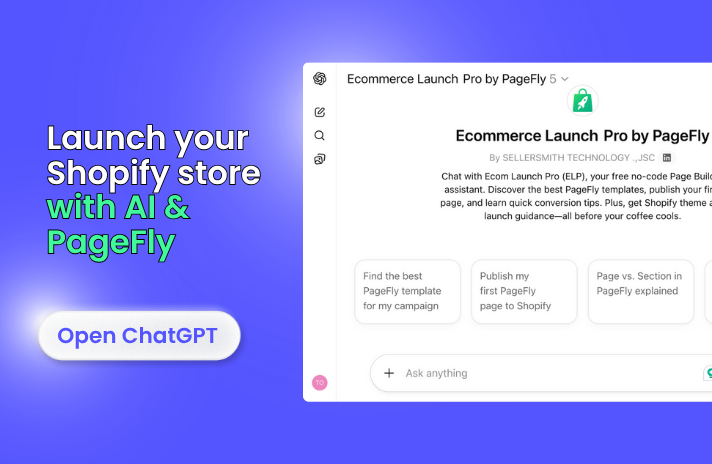
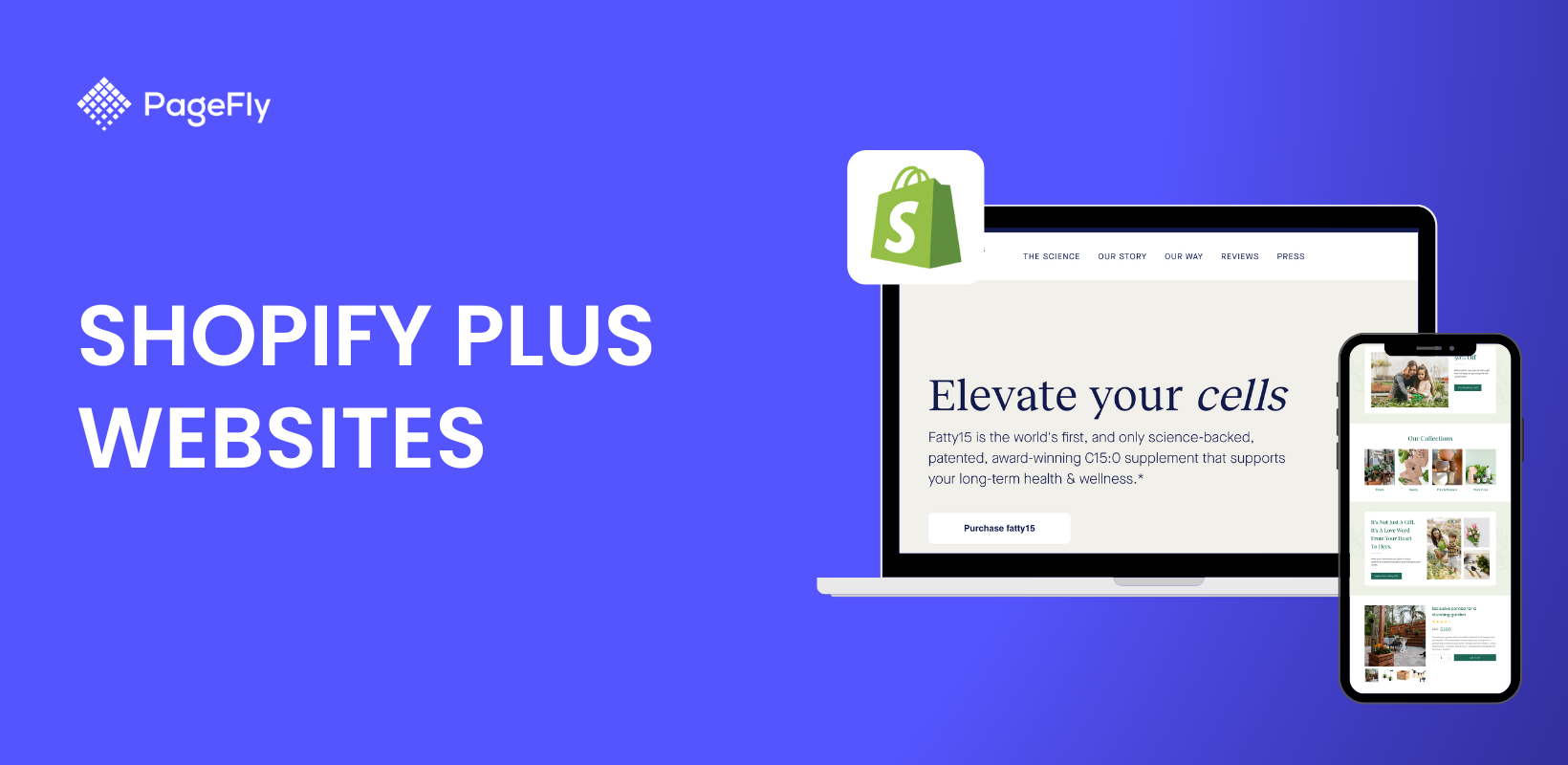
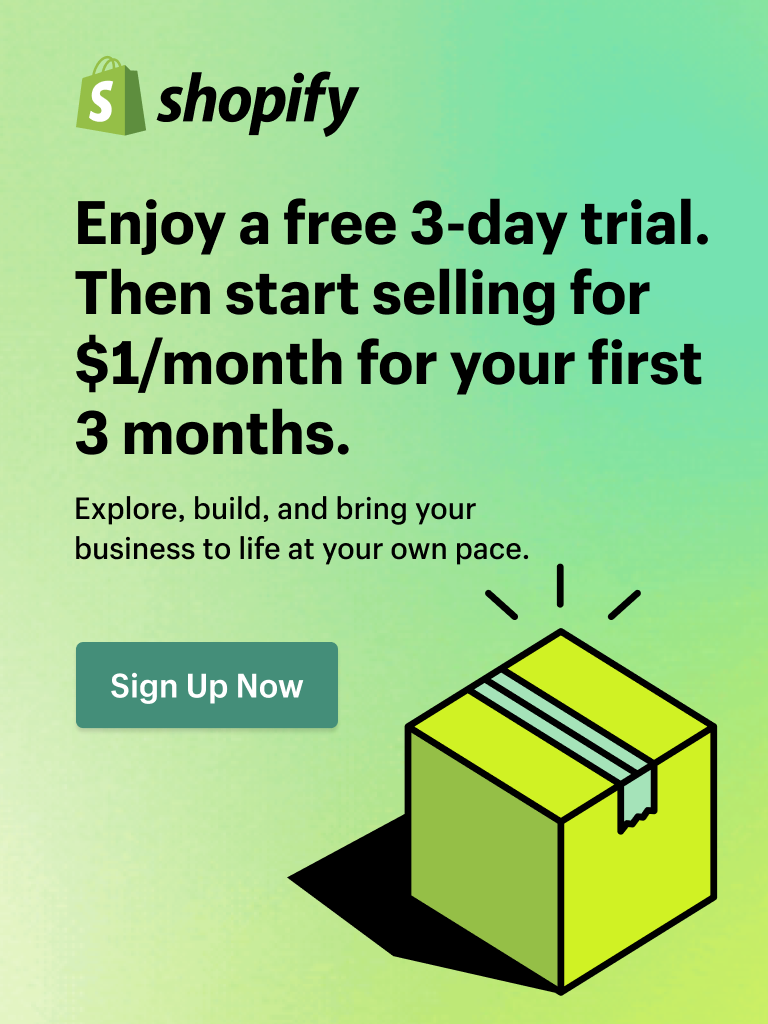
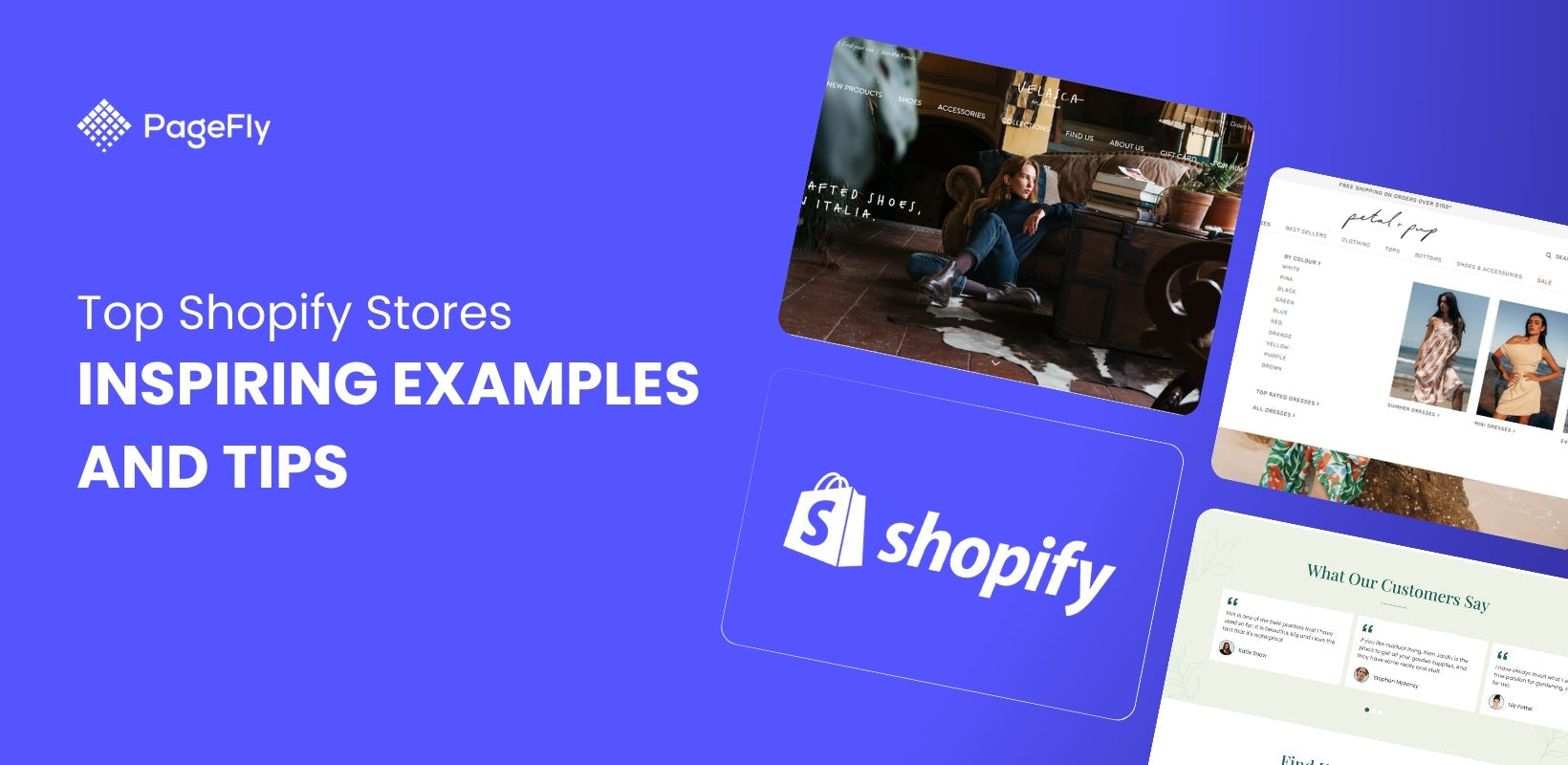
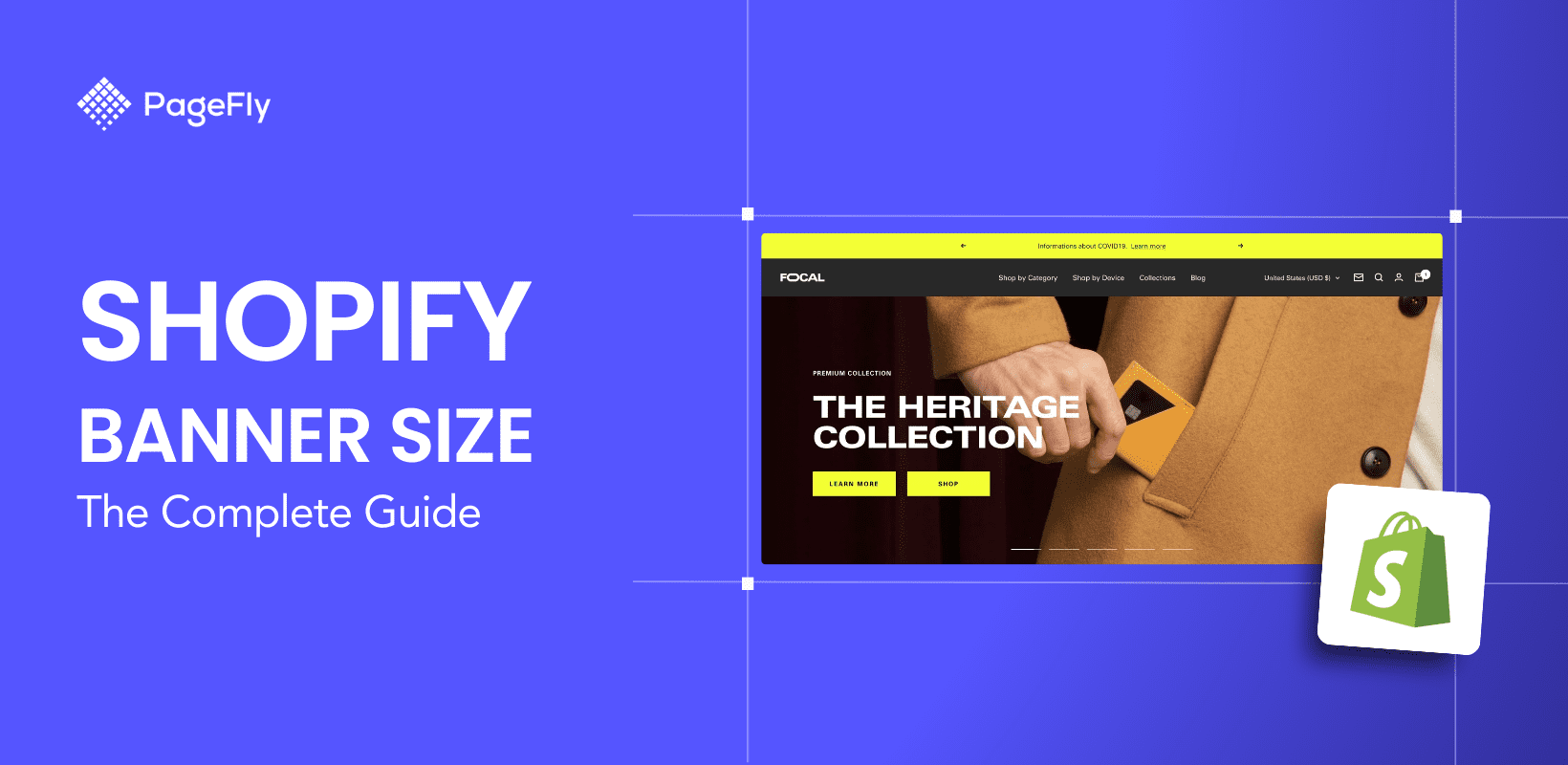
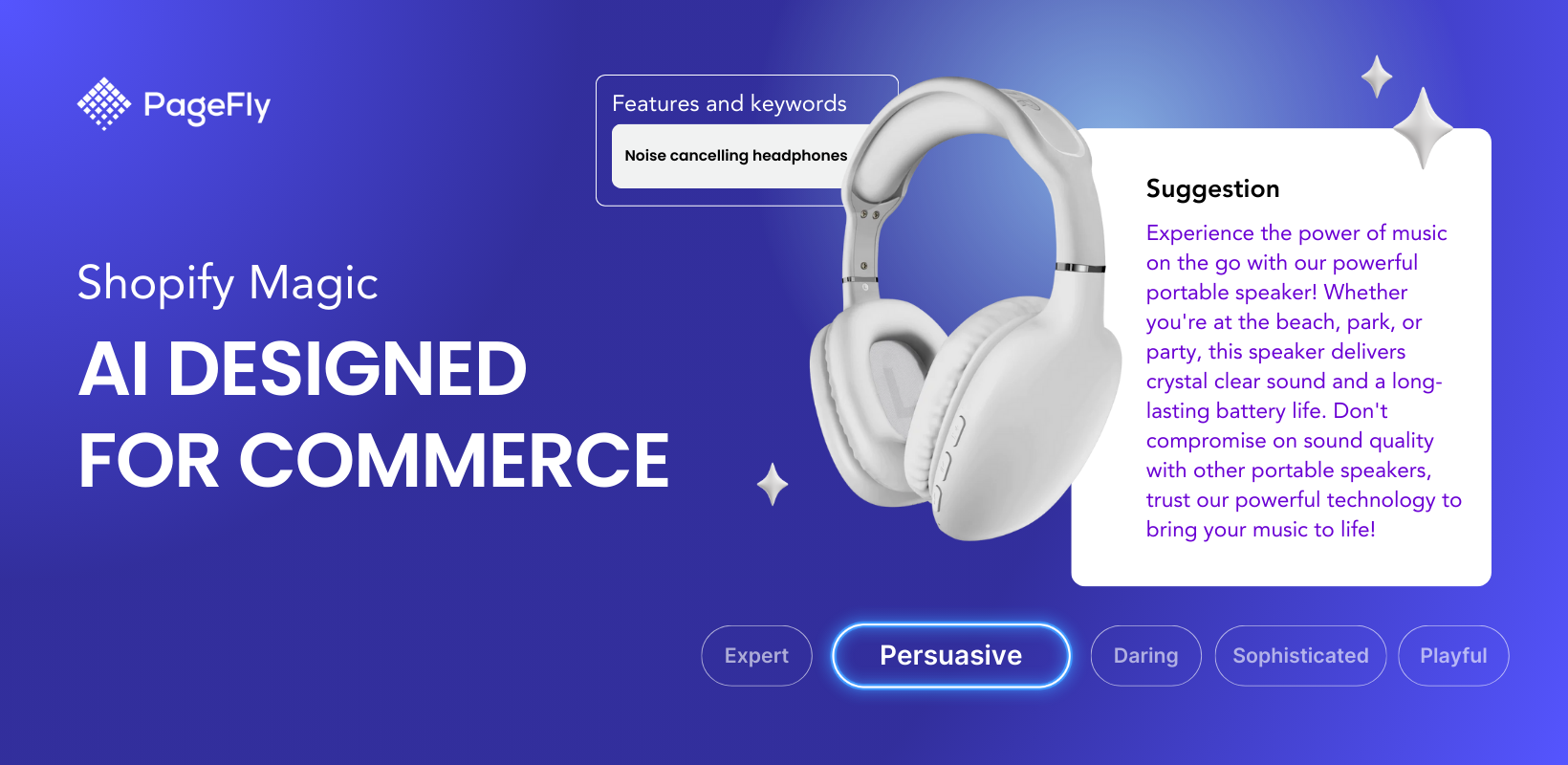
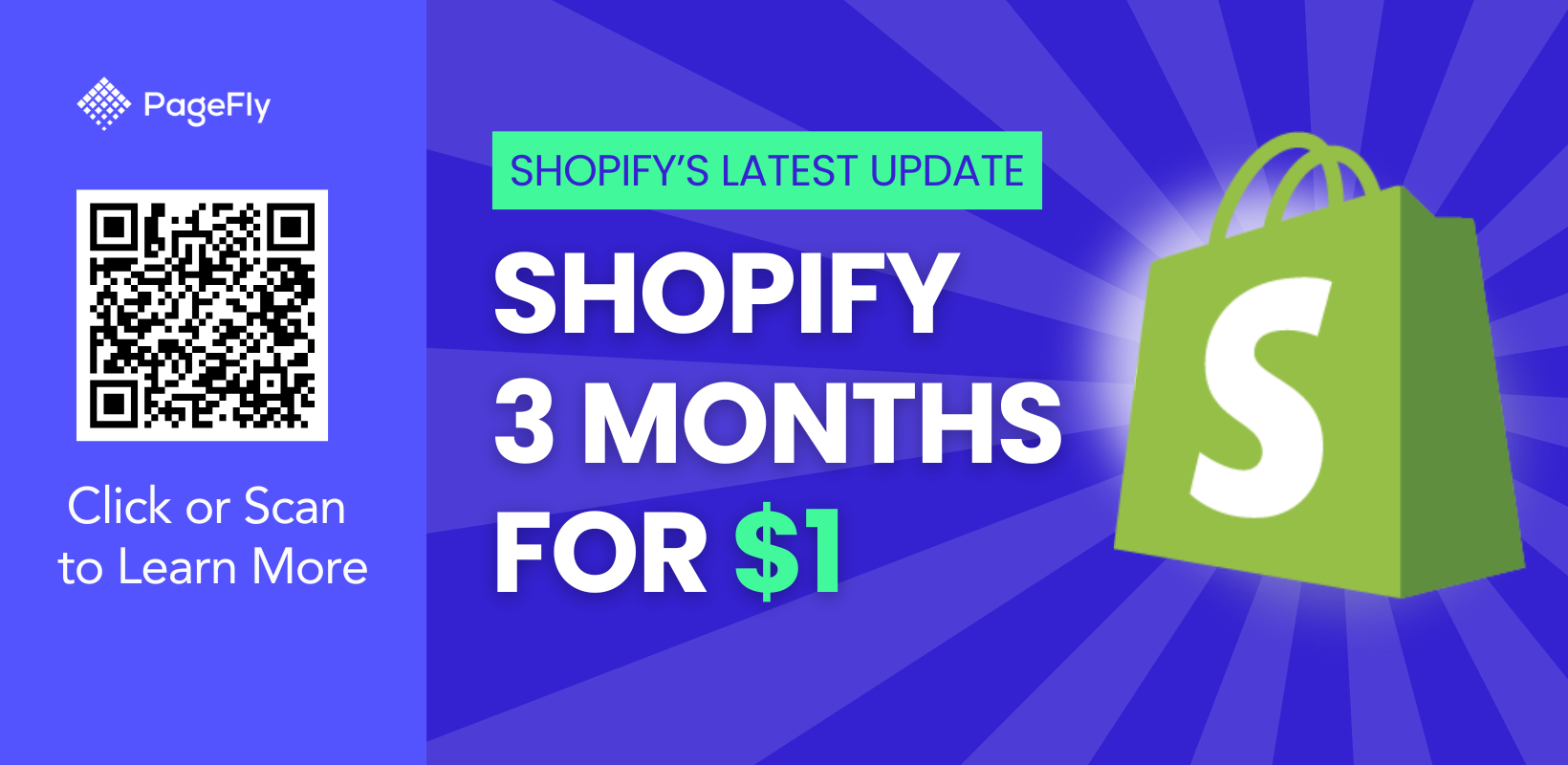
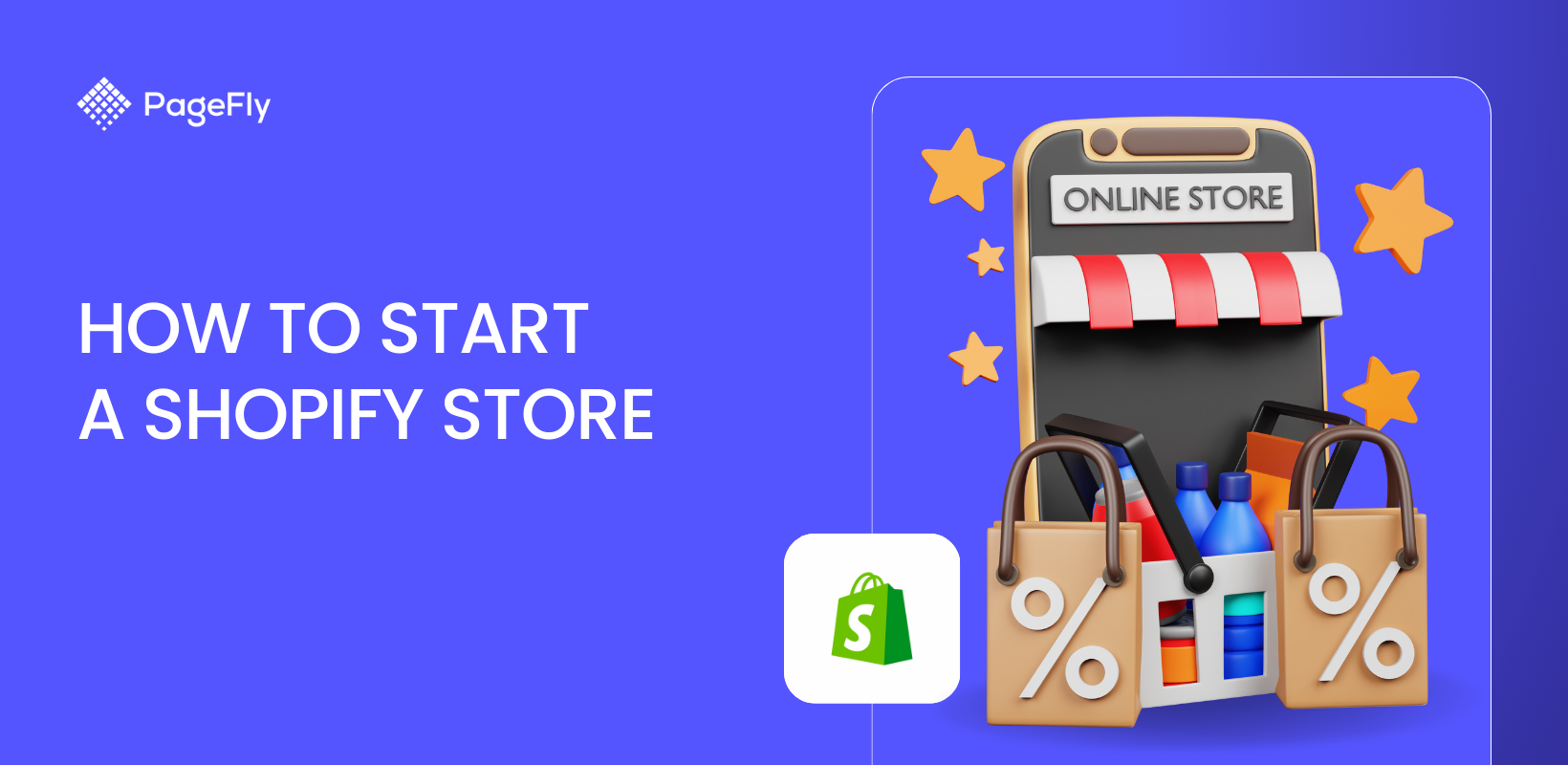
![27 Best Shopify General Stores + Complete Strategy Guide [2025]](http://pagefly.io/cdn/shop/articles/Best_Shopify_General_Stores_2f9d09f2-7c38-4da9-a495-e9f4898ddd68.jpg?v=1757271936&width=1640)
